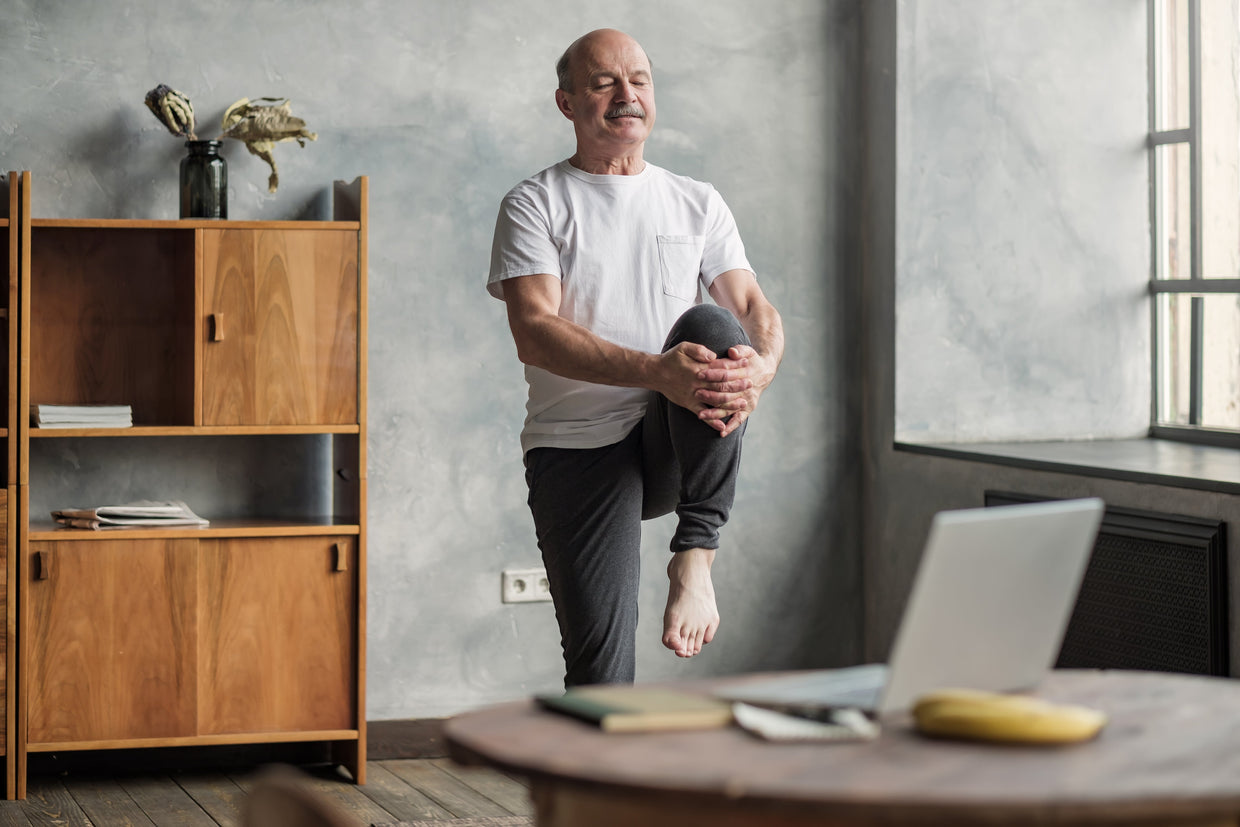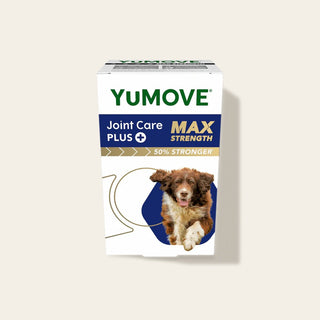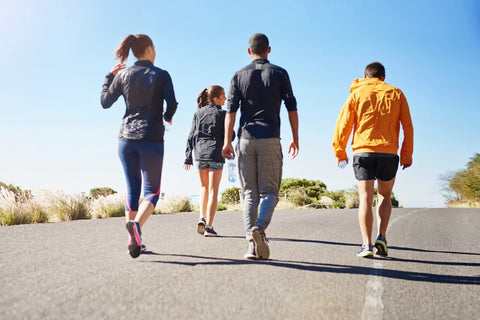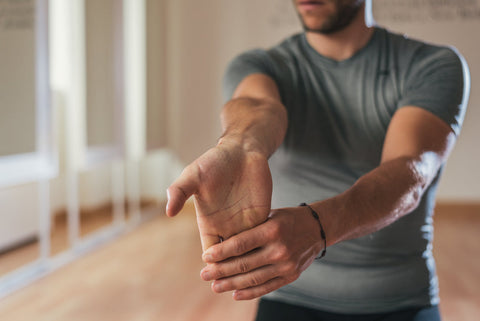

Signs you’re overdoing it with stiff joints
Exercise is one of the best things you can do to help improve joint stiffness. In an ideal world, you’d do at least 10 minutes of exercise each day. And if you struggle with that amount, we’d recommend doing three or four two-minute sessions throughout the day as opposed to all at once.
In this post, we’re exploring how exercise can affect stiff joints. Here’s how to ensure you’re not overdoing it...
Can too much exercise wear out your joints?
The reality is that there’s no evidence to suggest a correlation between repetitive use of a joint and the development or progression of joint stiffness. If your joints aren’t irritated by the exercise you’re doing, you’re likely causing no harm.
However, if you’ve been diagnosed with joint issues or have stiffness that suggests this is an issue, you should be mindful of the kind of exercise you’re doing. High-impact exercises – such as running, skipping or team sports – can aggravate symptoms.
We recommend a low-impact exercise routine filled with the likes of swimming, cycling, walking and at-home stretches.
Warning signs when exercising with stiff joints
When it comes to exercising, the most common sign you’ve overdone it is aching and sore joints. This is still true even if you already suffer from stiff joints. More pain than when you started, or new aches that won’t go away are an indication you’ve done too much.
If you’ve overdone it – particularly if one of your joints is swollen – apply ice for 10 to 15 minutes. This will help calm the inflammation and soothe pain.

Tips to protect your joints whilst exercising
There are lots of ways you can damage your joints. To protect them, it’s important to maintain a healthy weight, diet and workout routine. To reduce your risk of injury, follow these tips when you exercise:
-
Gradually increase the amount you exercise
It’s best to start off with small, consistent amounts of activity before building up to something more intense. Not only will this improve your health, but it will also prevent injury or strain.
-
Warm-up and down properly
A good warm-up before physical activity will help to increase your body temperature and heart rate and get your muscles and joints ready for movement. Warming down is also important, so repeat your warm-up steps at the end of your exercise session. This will help aid stiff joints and prevent muscle cramping.
Your warm-up and warm-down could include slow walking or perhaps a range of stretches aimed to get your body moving.
-
Just keep swimming
Swimming is great for soothing joint stiffness. The water takes the weight off your joints, making it easier to move. Why not try water aerobics and hydrotherapy, too? These are great for overall body mobility and put less strain on your joints than traditional workouts.
-
Rest when you’re tired
You might think that this contradicts everything we’ve said above. But there are times when it’s vital to rest your joints. If you’re feeling too tired during a workout, or if one day your joints are feeling too stiff, then take a break for a day or two. In your time off, focus on reducing the swelling and aching in your joints. That way, you can quickly get back to moving and feeling better!
-
Change your routine if something’s aching
If your knees are hurting, try switching things up a little. You could, for example, try water aerobics for a few weeks if you usually go cycling. Or, if your hands are especially stiff, try to use them less for a few days. It may be helpful to use a warm compress on the affected joint(s) before exercising and applying ice afterwards.
-
Enjoy what you’re doing
The best type of exercise is something you enjoy. This way, it won’t seem like a chore and you’re more likely to keep up with it.
When should you see a doctor?
If you’re in a lot of pain, and the affected area isn’t responding to home remedies – such as applying ice or frozen peas wrapped in a damp towel – you should seek medical help as soon as you can. You know your body best, so follow your gut instinct and talk to your doctor if you’re concerned about anything.
Taking iMOVE Active – our daily joint supplement for adults – is another great way to support your joint health. It’s packed with high-quality nutrients, including Vitamins C and E, to support an active lifestyle.




